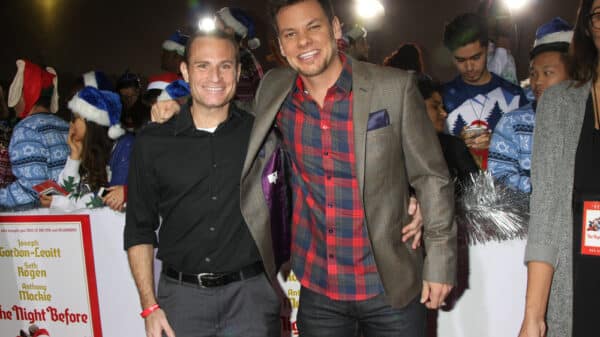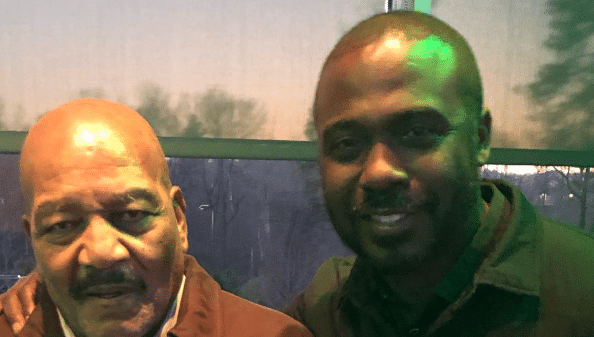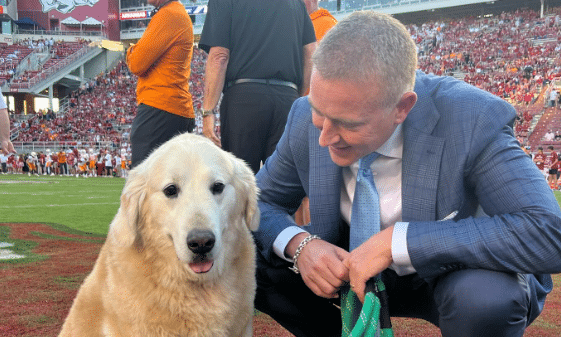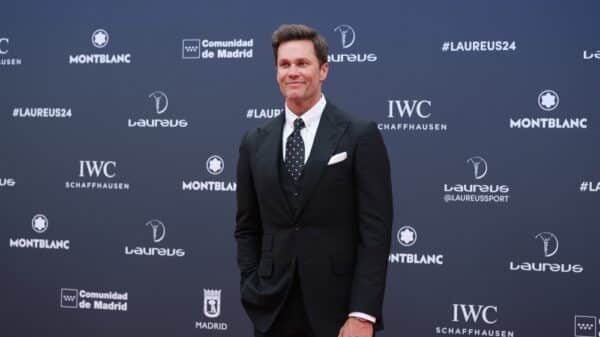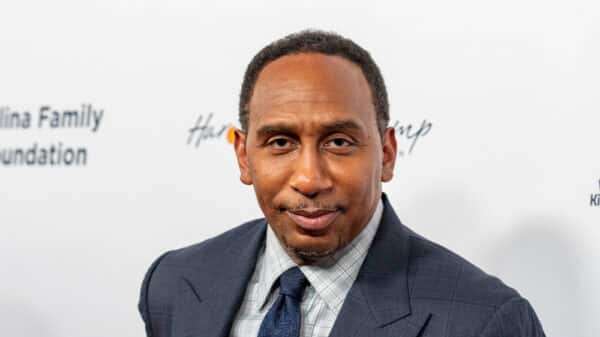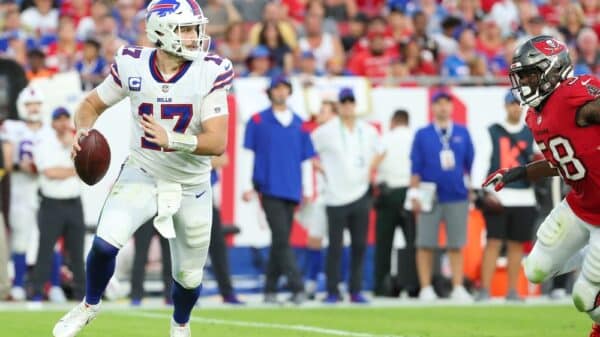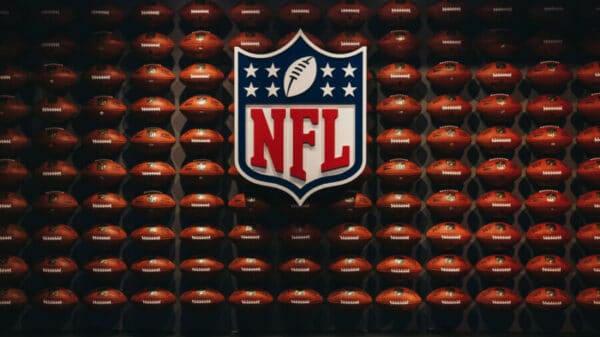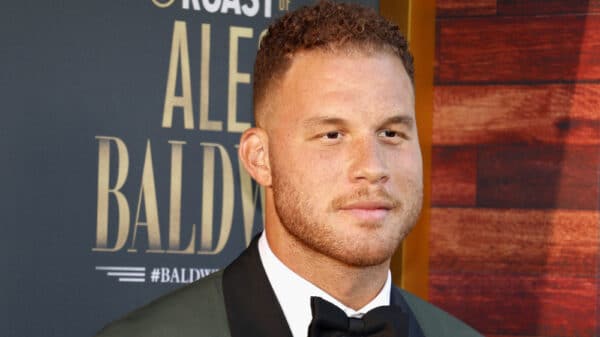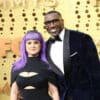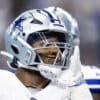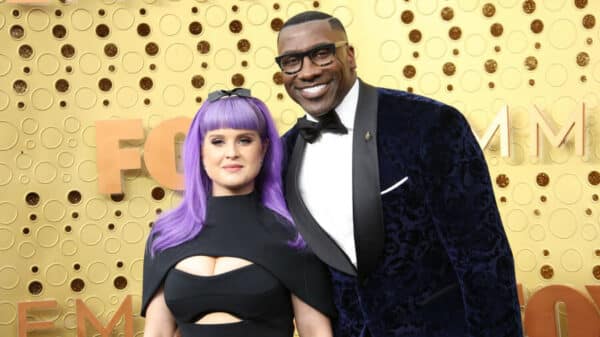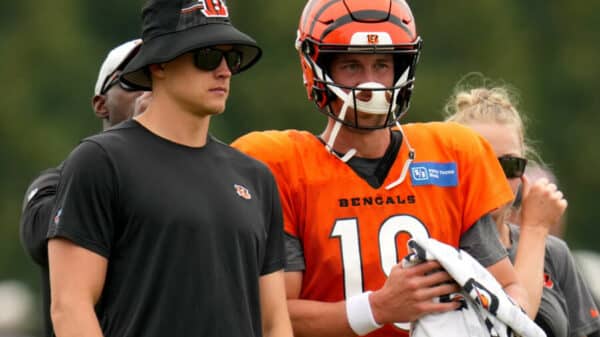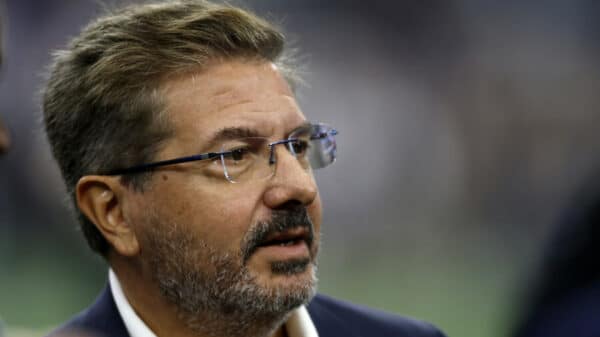Grant DuBose’s recent experience serves as a stark reminder of the perils that athletes face on the football field. During a high-stakes game against the Texans, the Dolphins’ wide receiver found himself in a harrowing moment—a routine catch turned into a devastating helmet-to-helmet crash that left him sidelined, grappling with the aftermath of a significant head injury. Despite the cheers of the crowd and the adrenaline that fuels the game, this instance illuminated the often-overlooked risks that come with the thrill of football.
Responses began pouring in from across the NFL community almost immediately after the injury. Among those who voiced their concern was Brett Favre, a Hall of Fame quarterback whose words carry weight in the football world. He took to X (formerly Twitter) to extend his thoughts and prayers to the DuBose family, reflecting on the violent nature of the sport. His acknowledgment that football possesses both beauty and brutality struck a chord with fans and players alike.
“Football can be a thing of beauty and brutal at the same time. Unfortunately, this is the latter. Prayers for Grant and his family,” tweeted Favre, encapsulating the struggle many feel in reconciling the entertainment of the game with the reality of its dangers.
As news of the incident spread, fans shared their reactions on social media, echoing the sentiments of sorrow and concern for DuBose’s well-being. Some compared the brutality of football to that of mixed martial arts (MMA), pointing out how the risks of serious injury exist on both fronts. “To me, it’s scarier in many ways than MMA,” one user stated, reflecting a growing unease about the conditions athletes endure in the name of sport.
Others directed their frustration toward the strategies employed by players and coaches, suggesting that the aggressive playstyle of some teams might contribute to injuries like DuBose’s. Criticism was levied at Texans’ head coach DeMeco Ryans, with fans alleging that his team operated with a reckless abandon that transcended the physicality traditionally expected in football.
“QBs need to stop hanging these guys out to dry,” remarked another concerned fan, emphasizing the responsibility quarterbacks have in protecting their receivers from dangerous hits.
The discourse underscored an important aspect of the sport that many fans grapple with—it’s not just about the game; it’s about the players’ lives and health. Each tackle and catch carries a weight that’s often underestimated, and those who play the game know all too well the consequences of pushing their bodies to the limit.
In the aftermath of the incident, DuBose was attended to by medical staff and taken off the field in a brace for precautionary measures, which sparked serious concern among fans and team members. He was transported to Memorial Hermann Hospital for further evaluation, and as the team awaited updates on his condition, the mood shifted from anxiety to cautious optimism. Both Tua Tagovailoa, the Dolphins’ quarterback, and head coach Mike McDaniel shared hopeful reports during the post-game press conference, indicating that DuBose was showing signs of improvement.
The incident has brought a renewed focus to the conversation surrounding NFL safety and player well-being. As much as fans love the sport for its excitement and high-energy moments, events like these serve as sobering reminders of the sacrifices athletes make and the urgent need for ongoing conversations about player safety and the overall culture of football.
For fans, this isn’t just about a game; it’s about understanding the lives that those players lead off the field and the bond between the athletes and their supporters. Grant DuBose’s story is now intertwined with the sport itself, reminding us all that while we cheer for our teams, we must also care for the players who embrace the game with their heart and soul.

